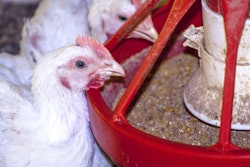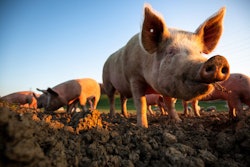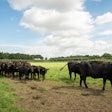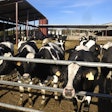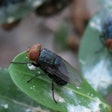
The Swine Health Information Center’s (SHIC) Wean-to-Harvest Biosecurity Research Program, funded in collaboration with the Foundation for Food & Agriculture Research (FFAR) and the Pork Checkoff, has selected five additional projects for funding after review of round two proposal submissions.
This brings the total number of projects awarded by the program to 15 for addressing a significant biosecurity gap in U.S. swine production. Institutions receiving awards in the second round are Lowe Consulting, Pipestone Research, Texas Tech University, University of Missouri, and University of Montreal. Real-time results of all projects will be shared as quickly as they become available.
The Wean-to-Harvest Biosecurity Program reflects SHIC’s responsiveness to an identified swine health vulnerability and collaborative efforts to stretch SHIC’s producer checkoff funds to safeguard the health of the U.S. swine herd. Proactively enhancing wean-to-harvest biosecurity will help control the next emerging disease in the U.S. pork industry, part of SHIC’s mission.
The updated research priorities in the second round of proposal solicitation focused on site and transportation biosecurity in five targeted areas:
- Personnel biocontainment and bioexclusion
- Mortality management
- Truck wash efficiency
- Alternatives to fixed truck wash
- Packing plant biocontainment
“These key areas were identified as research priorities in which new tools and technologies were needed to develop a comprehensive biosecurity approach for the pork industry,” said SHIC Associate Director Dr. Megan Niederwerder. Proposals underwent a competitive review process by a task force of industry stakeholders with funding recommendations approved by the SHIC Board of Directors, FFAR, and Pork Checkoff during their June 30 meeting.
“Each of the awarded research projects take a unique and novel approach to enhancing personnel or transport biosecurity. Investigations will determine the efficacy of new tools or validate novel technologies to reduce the risk of disease spread through these routes,” Niederwerder said. “For example, they will look at updating protocols, such as the entry bench, and addressing farms’ labor challenges by reducing the number of individuals entering barns. Projects were reviewed for their value to pork producers and their ability to provide cost-effective biosecurity solutions on the farm.”
Titles of round two Wean-to-Harvest Biosecurity Program projects awarded are:
- Self-vaccinating pigs to save labor, improve efficacy and enhance biosecurity: Mycoplasma hyopneumoniae, influenza A virus, ileitis, and erysipelas evaluations
- Determining the economical and epidemiological benefit of cleaning and disinfecting market haul trailers within the U.S. swine industry
- Comparison of a rail-mounted automated power washer to a commercial manual power washing crew in terms of cleanliness, manpower and water usage efficiency
- Development of an effective and practical biosecurity entrance system
- Using sensors and psychological profile to increase compliance of wean-to-market barn biosecurity
SHIC, FFAR, and Pork Checkoff launched the two-year Wean-to-Harvest Biosecurity Program in fall 2022. The first call for research proposals was announced in October 2022 with the goal of investigating cost-effective, innovative technologies, protocols or ideas to enhance biosecurity during the wean-to-harvest phases of swine production. Round one projects launched in March 2023. Round two proposals were due in late April 2023 and are expected to begin in July-August 2023. A pool of approximately US$2.3 million is available for the program, with approximately US$1 million being awarded to the first round of projects.


